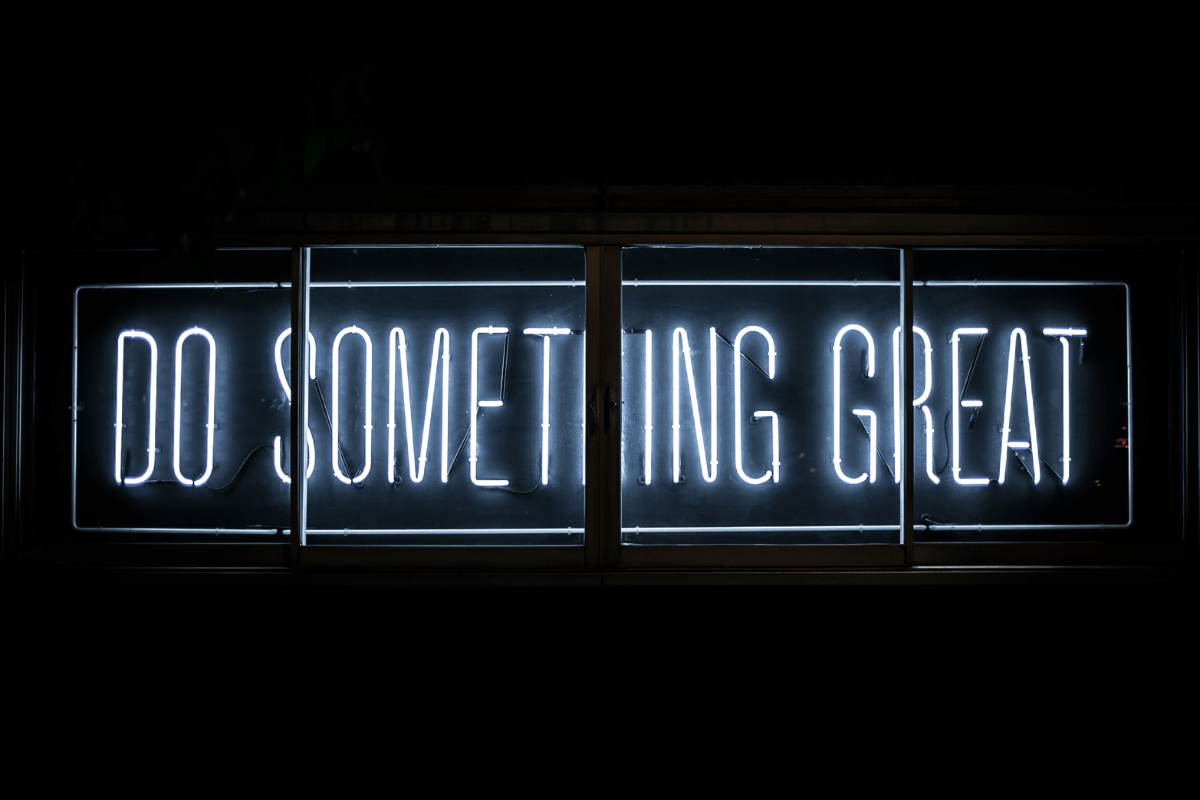Imagine a world where books are printed on recycled paper only. The ink used is vegetable based, and there’s no plastic involved in distribution and packaging. To help you imagine better, we found an independent publishing house that already made all this a reality.
Steve Bownds of Happy Pineapple is an author and founder who cares about his books so much that he wants to make sure they leave only positive traces.
Happy Pineapple’s Earth-friendly way to publish and distribute books is rather rare even in a creative industry. Their positive attitude and interest in running a business according to healthy life principles makes them a great example of the kind of ethical business we want to see more of.
One quick visit to their About Us page and it looks like they thought of everything when they started their small but mighty thoughtful publishing house: by publishing and selling their first book, they supported several other sustainable businesses along the way. In the process, sustainability took centre stage, which is a pleasant surprise in a world where profit at all costs seems to be the wrongly normalized mantra.
I met Steve in October, at The Ethical Consumer Conference in London. That’s when I read his charming first book and discovered the “making of” story. He recently answered a few questions for us. We hope they inspire other publishers and writers who want to clean their (production) act, start or (ethically!) upgrade their business.
What’s The Sluggard and the Ants about and what inspired you to write it? Is it going to be part of a series?
The Sluggard and the Ants is about friendship and trust. A sad Sluggard is befriended by some kind Ants and little by little sheds its hard crust, and little by little learns something called trust. Eventually the Sluggard discovers talents that it never knew it had. The inspiration for the book came from Proverbs 6:6 in the Bible, ‘Go to the ant, you sluggard; consider its ways and be wise’.
What made you decide to publish this particular story? Do you feel that there are topics not properly covered by most children’s books these days when we face so many threats as a species and seem to be losing some of our core values?
I definitely hope to help instill the importance of friendship, looking out for others, and kindness in those who enjoy the book. Those values can easily be lost in today’s society and I truly believe that they can strengthen families and communities. My aim is that any future books I write also contain similarly positive, culture-changing messages.

What triggered the sustainable printing process? Most writers just want to write the book, they don’t care much about the paper it’s printed on or the ink used. Do you think they should? If yes, do you think they have the power to change the way books will be printed in the future?
I see the environmental side of life as a real adventure. When my wife and I first thought about giving publishing a go we knew we wanted to go about it in accordance with our faith and values and therefore that the environmental impact of the book was hugely important. We also didn’t know where to start. But, amazingly, doors have opened up and I’ve been blessed to meet people who are really into sustainability. I am delighted that the book uses recycled paper and vegetable-based inks and wouldn’t want it any other way.
I absolutely think that writers and publishers should consider the environmental impact of their books. The quality of recycled paper and of the inks is so high that it is pretty much indistinguishable from ‘regular’ paper. Several customers have commented that they didn’t realise recycled paper could look and feel as good as it does. If enough writers and publishers begin to use such materials then I do think that the way books are printed in future can be changed, which would be awesome.
At the Ethical Consumer conference you were looking for ideas for promoting the book. How good are you with promotion these days?
I’ve never written a book, published a book or run a business before so, yes, the suggestions from the kind, ethically-minded folk at the Ethical Consumer Conference have really helped. I am very grateful for them!
Currently The Sluggard and the Ants is in 3 independent bookshops in London, which is cool. I have also had the privilege of going into a library, a school and a nursery to read the book, which has been a lot of fun. Lots of people have been very supportive and encouraging and I am always looking for new opportunities to share the story in the book and the how it was produced.
Where can people find your book?
The main place to find the book is on my website. The site also outlines all the other environmental/ethical aspects of the business so please do check it out.
The London bookshops that currently stock the book are:
Pandemonium, Sheen – @Pandemonium_LDN
Daunt Books, Holland Park – @Dauntbooks
Libreria, Shoreditch – @LibreriaLondon

What is the feedback so far? Are people (customers, distributors) interested in books that take into account things other than making more money or bringing more fame? In other words, do people care? If yes, who in particular?
One of the most surprising things about the feedback has been the huge interest in eco-bricks. All the waste plastic that Happy Pineapple produces is currently filling up Happy Pineapple’s first eco-brick. Whether I show the eco-brick to adults or to children they are captivated by it and really want to learn more. Hopefully we are going to get a movement of eco-brickers who help prevent plastic ending up in waterways and harming wildlife. Very few of the people who have been shown the eco-brick have heard of them before and yet so many love the idea.
I also endeavour to minimise the amount of plastic waste produced by Happy Pineapple. Brilliantly, the printing company were very happy not to transport the books wrapped in plastic, which has cut down my plastic use hugely.
Customers have also really enjoyed the bright, clear illustrations done by the very talented, Noushka Galley; loads of people have commented on them. The choice of font and the way that the writing sits on a stable, single colour background has also been highlighted as a feature of the book that makes it easier for children to read.
All in all I have been very encouraged by the feedback and am now working to harness it all as Happy Pineapple looks to move forward.
And have you had any special encounters that gave you hope you’re on the right track? Well, I know you are, but how do people less interested in sustainability react to your ‘making of’ story?
The highlights have been when children have been captivated by the story and then, immediately afterwards, helped put more plastic in the eco-brick. Not only have they taken in a story about important societal values but they’ve also heard about how to help protect the environment. Those times have been hugely enjoyable.

What’s next? A new book, hopefully. Are you gonna use the same printing method? I imagine you would, but is there room for improvement? Is there anything you would do differently? What are the lessons learned from printing the first book?
Yes, I am hoping to release a new book, Max and the Aliens, in 2019. I am particularly excited about it as it’s inspired by a story my brother wrote when he was around 10 years old. Also, Max and the Aliens is set in a tower block, which, I have been told is quite an unusual setting for a children’s book. Considering the number of people who live in tower blocks, I am pleased that this will be a feature of my book.
I am exploring enhancing the environmental credentials of the book by using biodegradable laminate on the cover. I really hope that proves do-able and I’d be buzzin’ if a biodegradable laminate was used on Max and the Aliens.
If someone wants to follow the same sustainable steps in production, what would you advice them to do?
I’d encourage people who want to run a truly ethical/environmental business to look at some business that they hope to be like. Personally, I was inspired by Green Oil. As cyclists we knew that their product was sustainable when we ordered it. What we didn’t know was Green Oil’s sustainable ethos impacted every facet of the business. That was brilliant to see and has pushed me to do as much as I can to care for the incredible planet that I believe God has given us.
Do you have any useful names/brands for someone who would like to do this but doesn’t know where to start and who to contact?

The printing company I use for Happy Pineapple is called Premier Print Group. They have been very easy to work with and have provided the recycled paper and vegetable-based inks. The web hosting company that I use is Green WebHost. They have really made environmental sustainability key to what they do.
All photos courtesy of Steve Bownds & Happy Pineapple



Leave a Reply